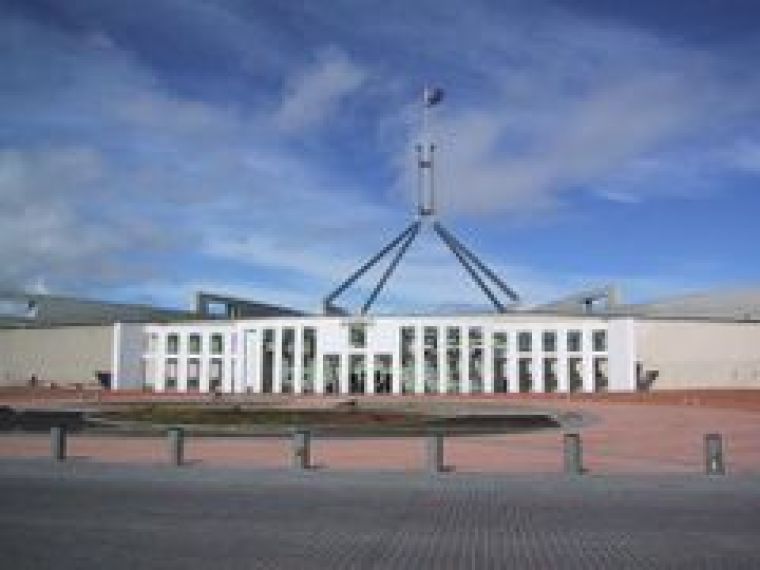
Most mainstream religious traditions still assume the procedural neutrality of the liberal public sphere, but the newer 'fundamentalist' forms are less willing to do so. The underlying tension is about the very terms in which public life is framed. What is needed is a sympathetic conversation about the cultural sources of the secular consensus, as has been exemplified in the Ratzinger- Habermas dialogue and between Jeffrey Stout and the so-called 'new traditionalists'.
More attention needs to be given to the way that late modern capitalist development has created a society that is more consumerist than civic; and, in the political scene, to the contradictions between values rhetoric and political realities. The challenge is to critically engage with fundamental questions of moral community and to re-visit the relationship between Christian tradition and democratic values.
In doing so, the alternatives of privatised faith or Christian nationalism are not the only options. In recent years there has been a significant and influential movement committed to recovering the 'eschatological politics' central to the Christian gospel. In this view the accommodation between church and political power has profoundly distorted the communication of the gospel of Christ. The political task of the church is simply to bear witness to the primacy of Jesus. As Yoder and Hauerwas have famously stated: the church best serves the world by being the church.
However, it is a mistake to regard their approach as sectarian and disengaged. It is rather a different kind of engagement that is subversive - in the same way that the early Christians refused to be content with being a religious sect either within Judaism or Hellenism and challenged the authority of Caesar in the name of another king Jesus.
Their refusal to acknowledge the sacral kingship of Caesar brought about both persecution and the conversion of Constantine and the adoption of Christianity itself as the religion of Empire.
Oliver O'Donovan goes beyond Yoder to claim that the underlying Christian vision of the reign of Christ was a key factor in shaping the present form of secular society. O'Donovan (and Rowan Williams) also claim that without this theological rationality we experience modernity as menace, opening the way for the return of new forms of totalising politics demanding the allegiance of citizens to the larger causes of a sacred state or economy.
In contemporary Australia we have increased evangelical involvement in electoral politics and public policy but it would be a mistake to regard consumerist Pentecostalism or the politically organised Christian right as being representative of evangelical Christianity in general. If there is a danger of an anti-democratic Christian nationalism the impetus will not come from within the Christian community, but rather (as it has in America) from the co-option of Christian imagery and language by hard right political protagonists.
There are a number of key challenges for Christians constructively engaged in electoral politics and public policy issues who should also be engaged in a process of deep structural renewal of the internal life of the church:
Recovering the narrative primacy of Jesus. A gospel which is reduced to a privatised personal relationship with Jesus is a gospel abstracted from the history of Jesus
Renewing Christian participation in welfare and pastoral care. How will Christians respond to the secularisation and professionalisation of welfare which loosens the connection between welfare and the life of church community; treats welfare separately from evangelism; does not see welfare as central; and allows Christian welfare agencies to be a part of the apparatus of the state?
Defending liberal institutions in terms of a Christian secularity. This means defending the separation of church and state, the rule of law, freedom of speech, protection of civil rights and so forth, and being concerned about the accountability and transparency of secular government and the discursive conditions of an open society.
Engaging constructively in a range of policy issues. Rather than promoting behaviours that conform to Christian principles, the purpose of Christian lobbying should be to maintain the conditions and culture of civic freedoms. This differs significantly from that of (neo-) liberal freedom, which emphasises individual autonomy and has much less of a stress on the wider community.
Participating in the reflexive debates about modernity's 'good life'. Christians should be less concerned to shore up eroding 'Judeo-Christian values' and instead aim to open up discussion on the deeper moral/metaphysical issues concerning the nature of humanity, the implications of new technological powers, our relationship to the wider non-human world, and the kind of political institutions that are needed to ensure equity as well as peace and prosperity. The challenge of Christians is to demonstrate what their eschatologically oriented faith in the primacy of Jesus means in the context of this extraordinary, risk laden world.
Ian Barns
BSc(Hons), MEd (Melbourne), PhD (Murdoch)
Lecturer in Science and Technology Policy,
Institute for Sustainability and Technology Policy, Murdoch University
This article was first published by the Australian Evangelical Alliance.
The full article can be found at: http://ea.org.au/content/documents/pdf%20files/Barns%20-%20Representing%20Jesus.pdf